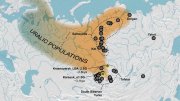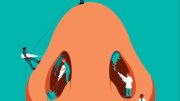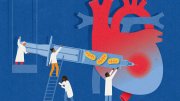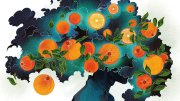Right Now
Why Humans Walk on Two Legs
Research highlights our evolutionary ancestors’ unique pelvis.
by David Kohn
Regenerative Biology’s Baby Steps
What axolotl salamanders could teach us about limb regrowth
by Saima Sidik
Why America’s Strategy For Reducing Racial Inequality Failed
Harvard professor Christina Cross debunks the myth of the two-parent Black family.
by Saima Sidik
The Origins of Europe’s Most Mysterious Languages
A small group of Siberian hunter-gatherers changed the way millions of Europeans speak today.
A Flu Vaccine That Actually Works
Next-gen vaccines delivered directly to the site of infection are far more effective than existing shots.
Why Heat Waves Make You Miserable
Scientists are studying how much heat and humidity the human body can take.
Do Mitochondria Hold the Power to Heal?
From Alzheimer’s to cancer, this tiny organelle might expand treatment options.
Shakespeare’s Greatest Rival
Without Christopher Marlowe, there might not have been a Bard.
Harvard’s Plant Collection Meets Space Science
Light-based analysis of botanical collections link plants to Earth’s changing climate.
Can an Orange a Day Stave off Depression?
A research study digs into the gut microbiome.










